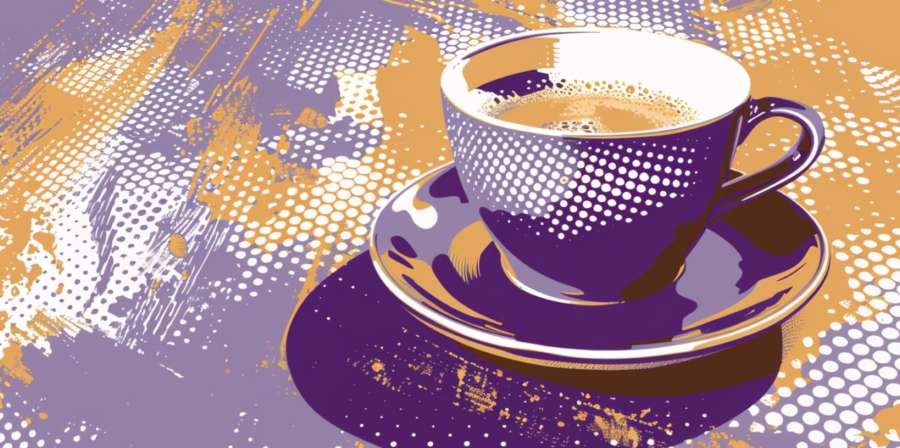Impact of Climate Change on Coffee Production: A Brewing Catastrophe

Coffee: Earth's Magical ElixirEver pondered how that magical elixir we call coffee—dark, steaming, and often accompanied by a touch of regret from last night's choices—made its way into your cup? It’s not just a miracle of modern barista skills; it’s the product of a delicate interplay of climate, soil, and a lot of luck. But there’s a catch. Imagine if, instead of relying on your local café, you had to trek into the rarefied air of mountaintops just to land on a decent brew. Well, buckle up, because climate change is brewing a storm that threatens our beloved beverage.The Bean’s Grumpy GardenCoffee plants are quite particular about where they thrive. They like it warm, but not too warm—you could say they’re the Goldilocks of the plant world. These quirky little plants thrive in specific climates, typically in regions around the equator. As greenhouse gases rise like your morning Java, the perfect brewing conditions are evaporating faster than a missed espresso shot.Researchers warn that areas suitable for coffee cultivation could drop significantly by 2050. If you think you’re hoarding toilet paper now, just wait until the coffee crisis hits! So, what exactly is happening in these sensitive growing regions that makes the Arabica bean cringe?Rising Temperatures and Drastic ChangesIncreasing temperatures are not just a nuisance for your beach vacation. They spell disaster for coffee. When temperatures soar beyond ideal levels, the plants become stressed, and nobody likes a stressed plant. Just like a barista on a busy morning, coffee plants can lose their ability to produce fruit, leading to lower yields.A side effect? More pests! If you thought your entomology class was tedious, wait until you meet the burgeoning pest population taking a liking to your caffeine crop. As coffee plants stress and struggle, pests like the coffee borer beetle rejoice, turning your coffee plants into a five-star buffet.Climate Change: The Fickle FriendRain, sunshine, and a bit of shade—this trifecta is what coffee dreams are made of. But climate change is flipping the script. Droughts, floods, and unseasonable weather patterns are creating a perfect storm (pun intended) for coffee farmers. With less predictable rainfall, it’s like playing roulette with your morning brew.Farmers are already adjusting their practices, but it’s not as simple as swapping a cappuccino for an Americano. Many coffee growers rely on traditional farming methods that can’t keep pace with emerging climate conditions. They’re not just facing financial challenges; they’re battling the whims of Mother Nature, who seems to be having an existential crisis of her own.Adapting to ChangeSo, how are our dedicated coffee-loving farmers fighting back against this brewing crisis? Here’s what they’re up to: - Experimenting with climate-resilient coffee varieties that can handle the heat.
- Implementing sustainable farming practices to maximize water efficiency.
- Collaborating with scientists to monitor climate impacts and make necessary adjustments.
These brave souls are taking proactive steps, but one has to wonder: is there a secret coffee-plant Whisperer who holds the keys to keeping these beans thriving? Let’s hope, because the coffee industry doesn’t just affect farmers; it impacts economies worldwide. A World Without Coffee: A Grim RealityImagine a world without coffee. There would be no more vibrant café culture, no mid-afternoon caffeine boosts, and, heaven forbid, no fancy lattes with artistic foam designs. The mere thought of a caffeine-less existence sends shivers down the spine of every coffee enthusiast. The global economy would feel the impact as well, with millions of jobs at stake from farmers to baristas to coffee shop owners.Without action, we might find ourselves needing to find alternative beverages to fuel our mornings. Picture it: a nation of people swapping coffee for herbal tea. Unthinkable!Latte FutureThe situation calls for collective action—from consumers to governments and everyone in between. Advocating for sustainable practices, supporting fair-trade coffee, and even considering a plant-based diet (yes, kale could help save the world) can go a long way. While the spectral caffeine crisis looms, let’s hold our cups high and invest in a future where our coffee dreams remain intact. Because without coffee, let’s be honest: it would be like running a marathon without training—exhausting and rather messy. So here's to hoping we can keep those beans roasting!
|
|







